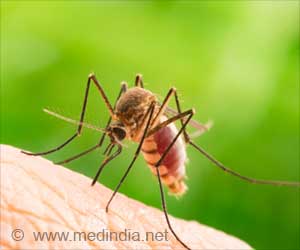While onset of winter is often accompanied by viral infections such as influenza or common cold, summers can as well be called a season of 'bacterial infections', according to a new study.
A new study has revealed the “seasonal factor” affecting the onset of infectious diseases. It claims that while winter witnesses a spurt in viral infections such as influenza or common cold, summers belong to 'bacterial infections'.
Researchers from Oregon State University have discovered that serious infections caused by gram-negative bacteria can go up as much as 17 percent with every 10 degree increase in seasonal temperature.The study suggests that the incidence of some of the illnesses might be up to 46 percent higher in summer than in winter.
"Everyone knows there is a seasonality to some viral infections such as influenza or the common cold, but we're now finding that some of these bacterial infections peak in the heat of summer," said Jessina McGregor, an assistant professor in the College of Pharmacy at Oregon State University
"Gram-negative bacteria are a frequent cause of urinary tract, gastrointestinal and respiratory infections, as well as more serious things like pneumonia, wound or blood infections," she added.
The researchers suggest that identifying these seasonal trends can help improve disease diagnosis, prompt treatments and better interventions to prevent the infections.
During the study, the researchers examined infections caused by several gram-negative bacteria, including E. coli, Pseudomonas aeruginosa, E. cloacae, and Acinetobacter baumannii.
The researchers believe P. aeruginosa is an aquatic organism, and infections caused by it could be linked to more people swimming in lakes or pools during the summer.
"The more we can learn about what is causing them and when they are most likely to occur, the better we can treat or prevent them," she added.
"Regardless of the mechanisms responsible for infections, recognition of the link between the physical environment and the incidences of pathogenic infection could aid in infection prevention interventions or the selection of optimal empirical antimicrobial therapy," the researchers wrote in their report.
The study is published in Infection Control and Hospital Epidemiology, a professional journal.
Source-ANI
TAN/L
 MEDINDIA
MEDINDIA




 Email
Email







